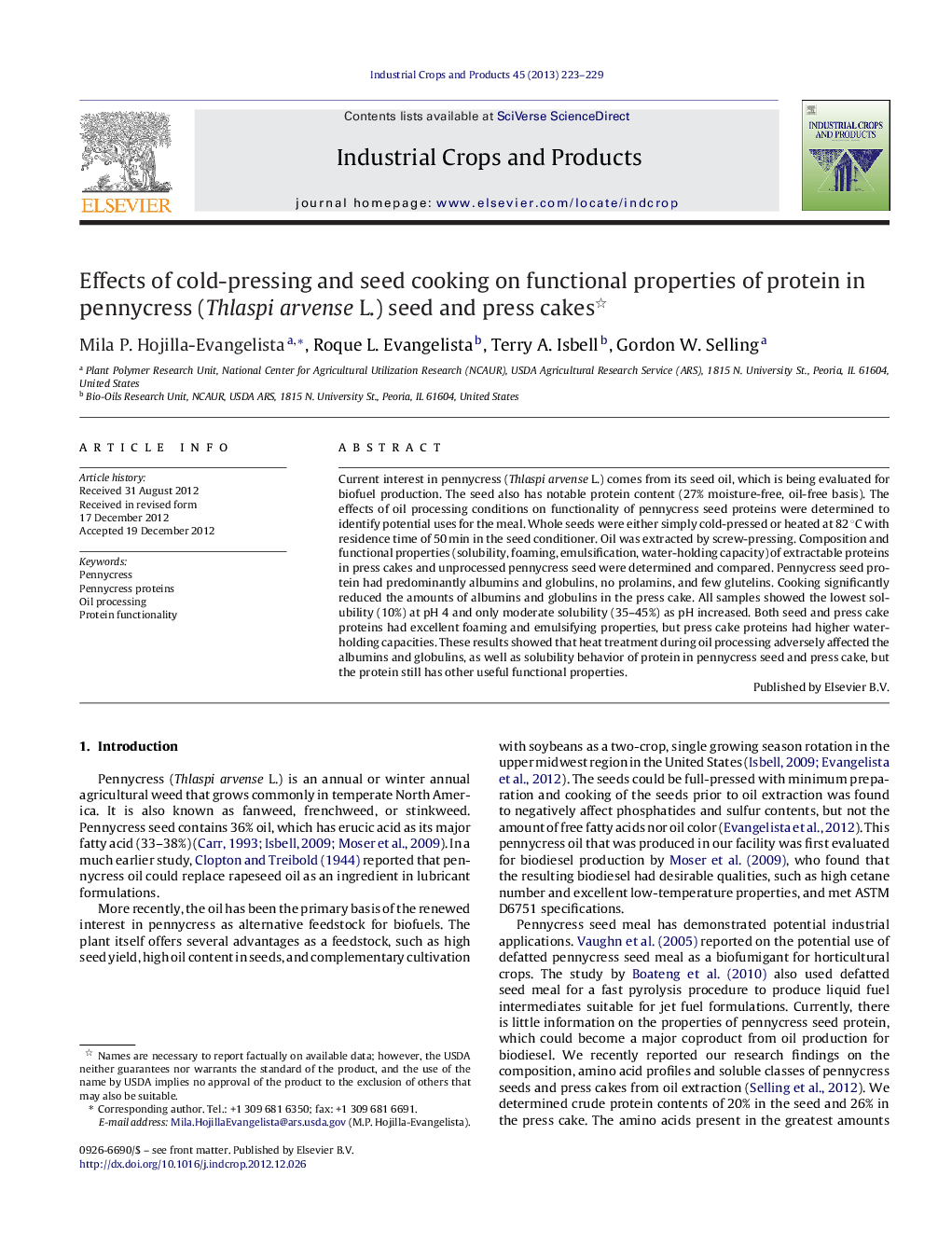| Article ID | Journal | Published Year | Pages | File Type |
|---|---|---|---|---|
| 4514040 | Industrial Crops and Products | 2013 | 7 Pages |
Current interest in pennycress (Thlaspi arvense L.) comes from its seed oil, which is being evaluated for biofuel production. The seed also has notable protein content (27% moisture-free, oil-free basis). The effects of oil processing conditions on functionality of pennycress seed proteins were determined to identify potential uses for the meal. Whole seeds were either simply cold-pressed or heated at 82 °C with residence time of 50 min in the seed conditioner. Oil was extracted by screw-pressing. Composition and functional properties (solubility, foaming, emulsification, water-holding capacity) of extractable proteins in press cakes and unprocessed pennycress seed were determined and compared. Pennycress seed protein had predominantly albumins and globulins, no prolamins, and few glutelins. Cooking significantly reduced the amounts of albumins and globulins in the press cake. All samples showed the lowest solubility (10%) at pH 4 and only moderate solubility (35–45%) as pH increased. Both seed and press cake proteins had excellent foaming and emulsifying properties, but press cake proteins had higher water-holding capacities. These results showed that heat treatment during oil processing adversely affected the albumins and globulins, as well as solubility behavior of protein in pennycress seed and press cake, but the protein still has other useful functional properties.
► Effects of oil pressing conditions on functionality of pennycress seed proteins. ► Pennycress seed protein had predominantly water- and saline-soluble proteins. ► Albumins and globulins of pennycress proteins are susceptible to heating during cooking step. ► Both seed and press cake proteins had excellent foaming and emulsifying properties. ► Press cake proteins had higher water-holding capacities than seed proteins.
